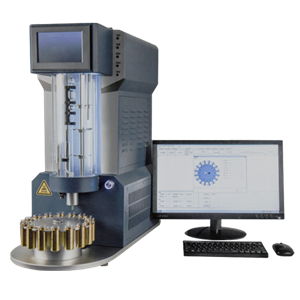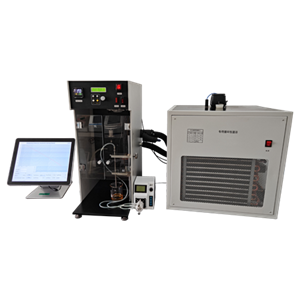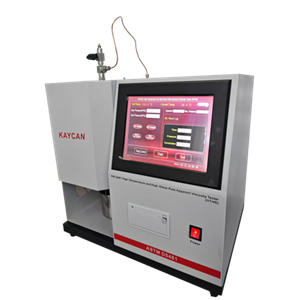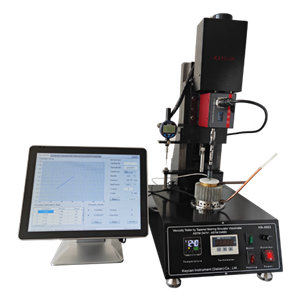How is HTHS Viscosity Measured?
About ASTM D4683
One method used to measure HTHS viscosity is ASTM D4683, officially called the Standard Test Method for Measuring Viscosity of New and Used Engine Oils at High Shear Rate and High Temperature by Tapered Bearing Simulator Viscometer at 150 °C.
Engine lubricant is introduced between a rotor and a stator at the test temperature of 150°C. The rotor experiences a reactive torque to the oil’s resistance to flow (viscous friction) and this torque response level is used to determine the HTHS viscosity. HTHS viscosity measured by ASTM D4683 correlates to the viscosity providing hydrodynamic lubrication in light-duty and heavy-duty engines. It has also been found to relate to fuel economy which is why it has become such a focal point today.
The measured number from the ASTM D4683 test gives the temporary viscosity loss of a lubricant under high shear at elevated temperatures representative of engine operating conditions. The lower the number, the lower the HTHS viscosity of the oil and the higher the anticipated fuel efficiency benefits. Measured in milliPascal.second (mPa.s), HTHS viscosity is also commonly referred to in centipoise (cP).
Traditionally, heavy-duty diesel engine lubricants have had a minimum HTHS viscosity of 3.5 cP. An increasing number of heavy-duty OEMs are pursuing HTHS viscosity below 3.2 cP in conjunction with modern engine hardware designs.
Our View
As engine durability may be compromised as HTHS viscosity is lowered, it is essential that new technology and polymers are utilized in high performance engine lubricants to maintain durability.
Laboratory testing is critical when developing robust engine lubricants. Arguably just as critical is real-world driving to ensure the lubricant works as intended throughout the drain interval. Millions of miles and kilometers of real-world driving across many operating conditions are commonly carried out during the development of formulated lubricants. This gives the reassurance these new higher performance, low HTHS viscosity lubricants deliver fuel efficiency opportunities while maintaining long-term protection of the engine.




